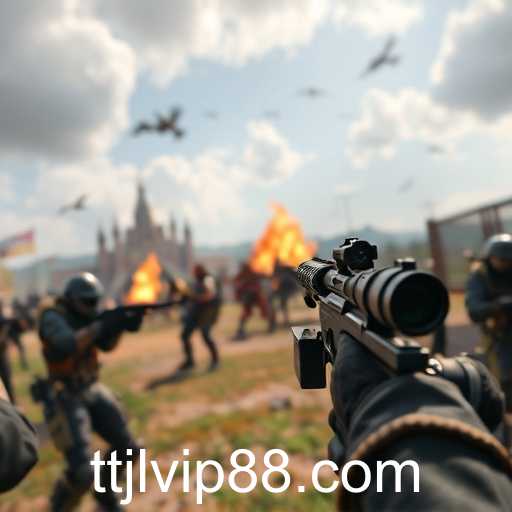Shooter games have evolved into one of the most popular categories in the gaming industry, providing players with adrenaline-pumping action and competitive landscapes. With the keyword 'ttjl' categorizing these games, let's dive into what makes shooter games a significant part of gaming culture.
Shooter games have long captivated audiences with their dynamic gameplay and immersive environments. As a category that falls under the intriguing keyword 'ttjl', these games incorporate various subgenres, including first-person shooters (FPS), third-person shooters, and multiplayer online battle arenas (MOBAs). Each subgenre has distinct characteristics, yet all aim to provide excitement through combat scenarios where reflexes and strategic thinking are vital.
In the realm of first-person shooters, games like 'Call of Duty' and 'Counter-Strike' have set the standards high by offering intricate maps, a wide arsenal of weapons, and competitive multiplayer modes. The intense focus on accuracy and quick decision-making keeps players engaged, fostering a strong community of dedicated gamers who often participate in online tournaments.
Third-person shooters, such as 'Gears of War' and 'Fortnite', provide a different perspective that allows players to see their character on-screen, often enhancing tactical movement and covering mechanics. This viewpoint can lead to richer storytelling and character development, offering a more cinematic experience compared to FPS games.
MMOBAs introduce another layer by blending shooter mechanics with strategy elements. Games like 'Paladins' and 'Overwatch' require team coordination and role management, adding complexity and depth to the standard shooter formula. These games often feature diverse characters with unique abilities, inviting players to experiment with different roles and strategies.
Beyond the gameplay, shooter games have become a cultural phenomenon, contributing significantly to the eSports industry. Events like the 'Fortnite World Cup' or the 'Counter-Strike: Global Offensive Major Championship' attract global audiences, with professional players becoming celebrities in their own right. The shared experiences within these games lead to strong communal bonds, as players form clans and teams, share strategies, and bond over common victories and defeats.
In conclusion, shooter games, identified under the 'ttjl' category, are more than just action-packed experiences—they are a testament to how virtual worlds can mirror the thrill and challenge of real-world sports. Their popularity continues to rise, influencing both the gaming industry and popular culture. Whether one is drawn to the adrenaline rush, the competitive spirit, or the communal aspects, shooter games offer something for everyone, securing their place as a cornerstone of modern gaming.




